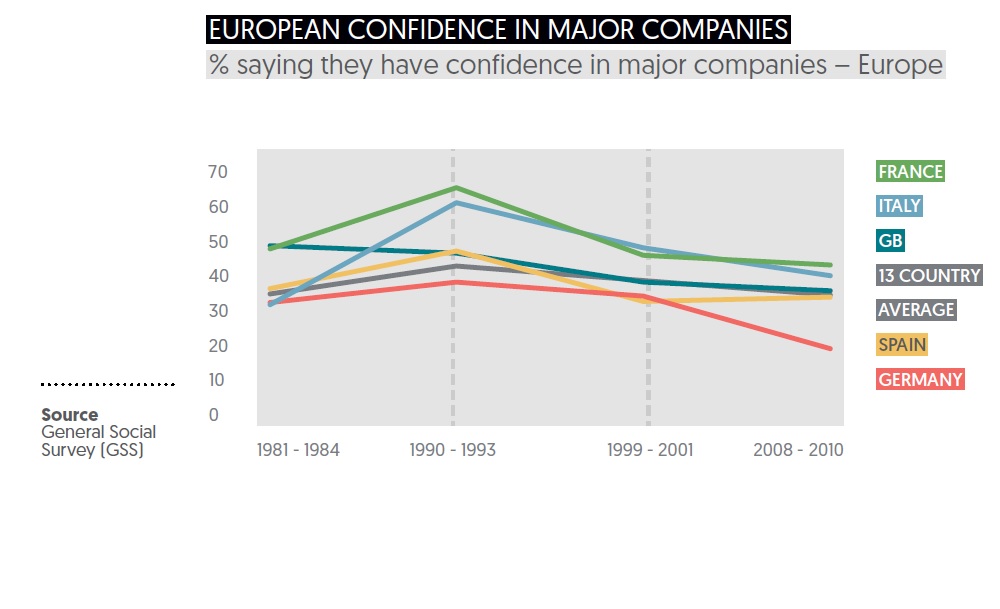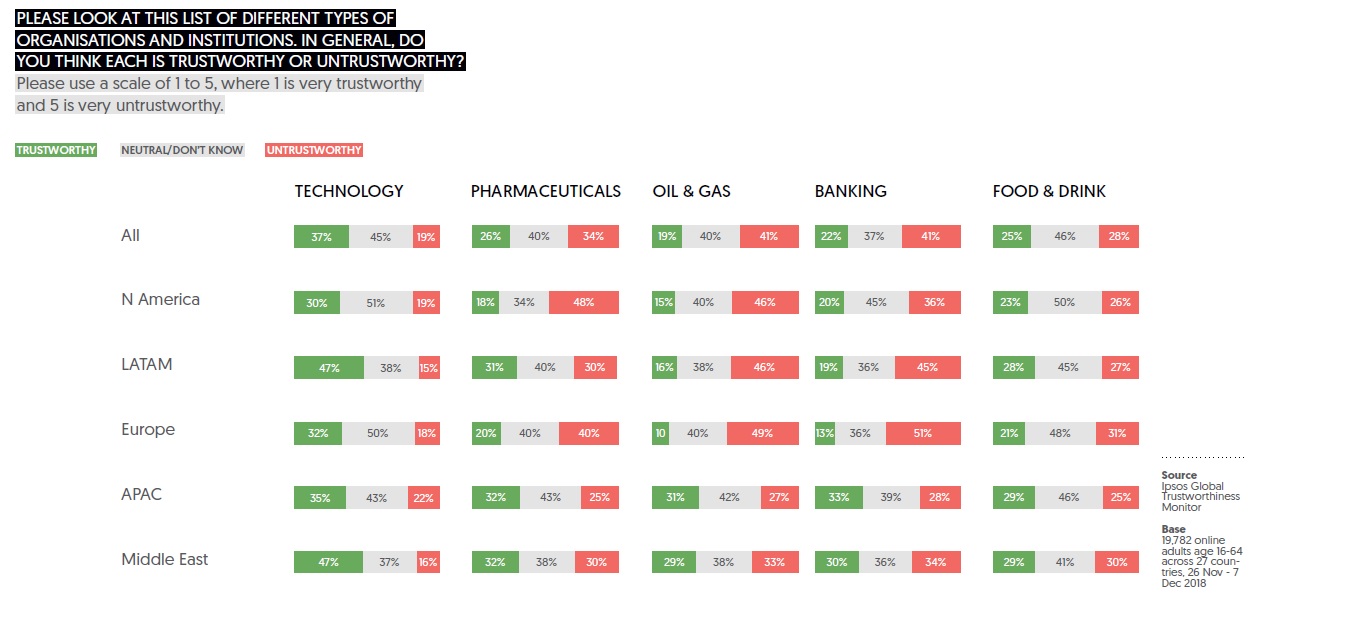Tags:
Ipsos MORI conducted this study to investigate whether the widely accepted narrative around a current crisis of trust is accurate. To do so, it looks at survey data on public attitudes to trust from around the world.
Ipsos MORI research shows that governments, public services, media or many industrial sectors are seen as trustworthy only by few people. Governments and the media are particularly low down on the list. However, results show that many people are in a neutral position rather than being actively negative. This seems to suggests that improvement is possible is organisations are able to engage with customers and citizens effectively.
Drivers of trustworthiness that emerge as particularly important to the public are reliability, transparency and responsible behaviour. However, it is also clear that there is no silver bullet or one-size-fits-all approach to build trust and organisations need to have a good understanding of their specific cultural and market context to succeed.
Although the narrative of a decline of trust in business seems to be based on some evidence, especially in certain countries, Ipsos MORI warns against easy generalisations. For example, in Germany confidence in major businesses has nearly halved between the early 90s and the late 2000’s, and other countries such as France and Italy have also seen a sharp decline. However, although there is a decline on average since the early 1990s, some countries are stable (such as Norway and Ireland), and others even see some improvements, such as in Denmark and the Baltic states. In addition to that, Ipsos MORI points out that it doesn't appear to be a recent phenomenon. The major shift from positive to negative opinions about it happened nearly 20 years ago and changed little since then.
Ipsos MORI concludes that the evidence collected seems to indicate that the truth in business follows more complicated patterns than people might think. It has periods of stability - or even rises - as well as downward trends, and it follows different patterns in different countries.
Despite this, it is worth noting that the public across several of the countries surveyed is more likely to say that major industry sectors are untrustworthy than trustworthy. Against this backdrop, it is perhaps surprising that the technology sector is the only one of the five sectors measured which is rated as more trustworthy than untrustworthy. Still, 45% of the public on a global level selected either a mid-point scale or for the 'don't know' option, suggesting that they might be neutral ot making up their mind on this point.
On the other end, the Pharmaceutical, Oil & Gas, Banking and Food & Drink sectors are all seen as untrustworthy by a larger number of people than trustworthy. Global averages also conceal substantial regional differences that are highlighted in the report.


